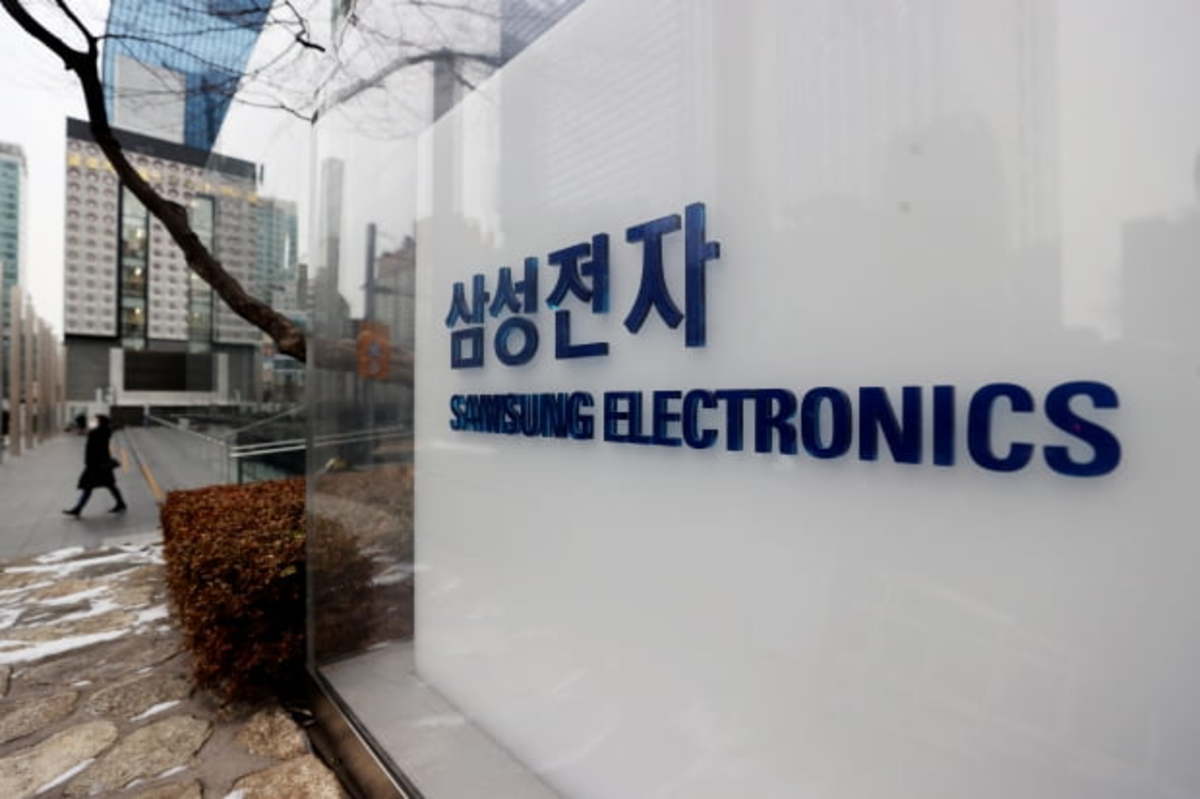Samsung Electronics reported a 29.62 percent increase in operating profit in 2020, achieving the company’s fourth-largest profit despite the pandemic situation, according to its earnings announcement on Thursday.
The South Korean tech giant posted 236.87 trillion won ($212.43 billion) in revenue and 35.99 trillion won in operating profit last year.
While the annual revenue rose slightly by 2.78 percent from a year earlier, the operating profit surged nearly 30 percent on-year.
It is the fourth time that Samsung achieved an annual operating profit of more than 35 trillion won.
In the fourth quarter of 2020, the company registered 61.55 trillion won in revenue and 9.05 trillion won in operating profit.
“Although challenges from the COVID-19 pandemic continued, company-wide efforts to ensure a stable supply of products and services globally helped Samsung’s fourth-quarter results,” the company said.
Samsung reported less-than-expected earnings in the first two quarters of 2020 due to the impact of the COVID-19 outbreak, but benefited from pent-up demand in the third quarter, which led to higher sales of chips, consumer electronics and smartphones.
The semiconductor business accounted for about half of the total operating profit last year.
The chip-making unit raised 72.86 trillion won in revenue and 18.81 trillion won in operating profit, which rose 12 percent and 34 percent from 2019, respectively.
Chip demand surged due to increased sales of home appliances and mobile devices as consumers had to spend more time at home, market watchers say.
The consumer electronics business obtained a whopping 41 percent growth in operating profit.
The unit posted 48.17 trillion won in revenue and 3.56 trillion won in operating profit. It is the first time that the division‘s operating profit surpassed 3 trillion won.
The smartphone business saw a 23 percent on-year increase in operating profit at 11.47 trillion won.
The tech giant’s capital expenditures in 2020 reached 38.5 trillion won, including 32.9 trillion won spent on semiconductors and 3.9 trillion on displays.
“Spending on memory semiconductors grew significantly for capacity expansion and introduction of advanced process technology, while investment in the foundry business also jumped on expansion of 5-nanometer EUV facility,” the company explained.
Along with the annual earnings, Samsung announced a new shareholder return program for the 2021-2023 period.
The company will return 50 percent of the free cash flow generated in the period and raise annual dividend payouts to 9.8 trillion won.
The company also approved a one-time special cash dividend of 10.7 trillion won based on the free cash flow of 79.2 trillion won generated in the period between 2018 and 2020.
In April, shareholders of record as of end of 2020 will receive 1,932 won per common share and 1,933 won per preferred share.
“Despite all the difficulties including the COVID-19 pandemic, the company could announce the special dividend, owing to the efforts made by our employees and partners,” said Choi Yoon-ho, chief finance officer at Samsung. “The company will actively utilize the financial resources in possession in order to expand facility investments and conduct mergers and acquisitions plans.”
Regarding the M&A plans, Choi further explained, “Samsung has been carefully considering and preparing for M&A targets over the last few years.”
“It is difficult to pinpoint the exact timing, there could be a meaningful size of M&A deal in the 2021 to 2023 period,” he said.
For 2021, Samsung remained cautious about lingering uncertainties over the possibility of recurring COVID-19 waves and geopolitical and economic factors.
After undergoing price declines, the memory chip market is expected to see a recovery during the first half of the year, but the strengthening won against the US dollar would affect the chip business’ profit.
In the final quarter of last year, the chip business saw a 1.7 trillion won reduction in operating profit due to the strong won.
By Song Su-hyun (
song@heraldcorp.com)








